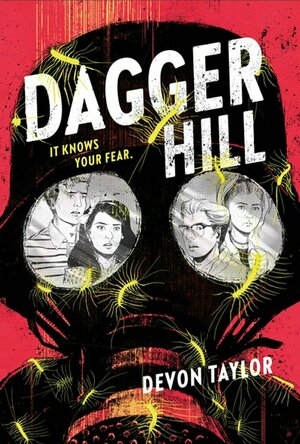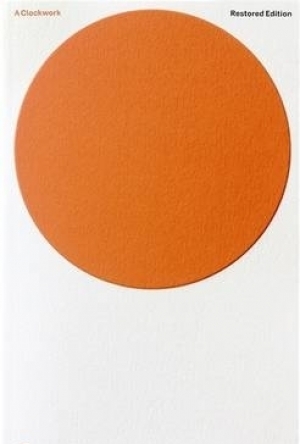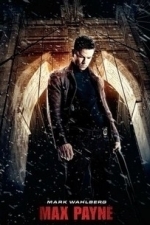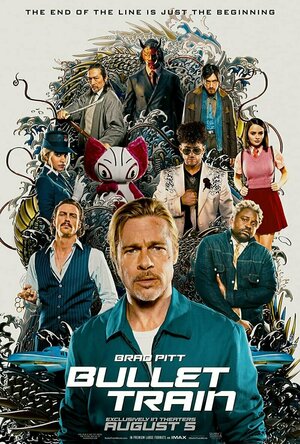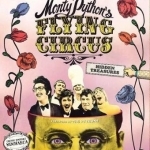
Monty Python's Flying Circus: Hidden Treasures
Book
Carlton Books presents Monty Python's Flying Circus: Hidden Treasures, the complete history of Monty...

The Dog Book: Dogs of Historical Distinction
Book
The perfect gift for any dog lover, this is the story of man's best friend from the canine gods of...
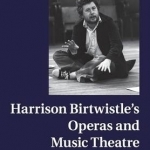
Harrison Birtwistle's Operas and Music Theatre
Book
David Beard presents the first definitive survey of Harrison Birtwistle's music for the opera house...
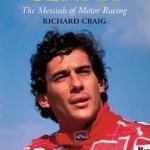
Ayrton Senna: The Messiah of Motor Racing
Book
Ayrton Senna is arguably the most famous racing driver there has ever been. All over the world, he...
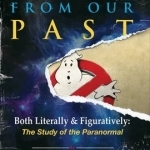
Ghosts from Our Past: Both Literally and Figuratively: the Study of the Paranormal
Erin Gilbert, Abby L Yates and Andrew Shaffer
Book
As seen in the upcoming Sony Pictures film Ghostbusters. Years before they made headlines with the...
Charlotte (184 KP) rated Dagger Hill in Books
Sep 10, 2021
The potential to be made into a film is definitely lurking there.
The four main characters, teenagers on the threshold of their senior year, are interesting and quirky. Each has a different personality that gels well with the others but doesn't then blend into one boring entity.
Set in 1989, a time before the internet and mobile phones (as we know them now and the actual ability to carry one) Dagger Hill has a small town charm. A charm that contrasts against the awful things that happen there.
This is at least a young adult read with themes of horror and violence. It could easily sit on a shelf with books written by such greats as King and Laymon. It's the kind of book that crawls into your thoughts when you least expect it and creates vivid scenes in your mind.
@Merissa
Phil Leader (619 KP) rated A Clockwork Orange in Books
Nov 11, 2019
Welcome to the world of Alex, a 15 year old boy living in some unspecified country in an unspecified future time. What Alex enjoys is classical music and ultraviolence. Every night he and his gang terrorise the streets looking for any kind of criminal activity, the more violent the better. They steal, burgle, assault and rape, all for fun.
When Alex is caught he is put in prison and then rehabilitated using an experimental procedure. But what effect will this have on Alex? And will it produce the desired results of preventing the youth turning every night into a time of danger for all.
The first thing any reader notices about the book is that, told from Alex's point of view, he uses street slang throughout. This makes it clear that the young have their own culture and are quite separate from the adults in terms of outlook and thinking. It also makes the reading quite immersive, like learning a foreign language particularly as only a very few of the words are ever explained and must be learned from context. This makes for a steep learning curve at the start of the book but it is worth the effort. The use of slang terms for the violent acts also helps to soften them a little - clearly what Alex does is horrendous but as it is described using these terms it is perhaps not so graphic as it would be otherwise.
Like critics of the film, it would be unfair to focus purely on the violence. The book is divided neatly into three parts. In the first we follow Alex as he perpetrates a number of terrible crimes. The second part describes his experiences in prison and is rehabilitation. The third what happens when he returns to society.
Burgess is clearly trying to make a number of points about individuality and state control of its citizens, and a fairly heavy handed job he makes of it too. But this is a slight volume - the paperback I read ran to a mere 140 pages - so there is little time for subtlety.
I would say the first two sections of the book were the best. The third section suffers a little from being rushed - it would have been better to have more insight into the world of the 'new' Alex - and also of the story being driven by coincidence after coincidence. This really did make the book seem like a sort of dream sequence where previous characters appeared and suddenly took on new meanings. In fact what it reminded me most of was the interrogation sequence in Alfred Bester's The Demolished Man. This did detract from the story for me but not enough to do much damage to the tale. The ending is particularly strong and positive, in a book full of desperation it strikes the perfect counternote.
For anyone interested in the social side of 'science fiction' this is definitely worth reading. A morality tale for the future.
Rated: Frequent and extreme violence
Gareth von Kallenbach (980 KP) rated Max Payne (2008) in Movies
Aug 14, 2019
Max has become a creature of the night, and spends his off hours patrolling the grimy sections of the city looking for clues about the death of his wife and taking on all manner of the cities criminal elements to get to the truth which has so long eluded him.
While attempting to gain information from a former snitch, Max is introduced to the Natasha Sax (Olga Kurylenko), and her sister Mona (Mila Kunis). The fact that Mona is suspicious of Max from the start is of little concern to Natasha who follows Max back to his apartment and attempts to seduce him. Max quickly spurns her advances which causes Natasha to leave his apartment angry and unbeknownst to Max, steals his wallet in the process. Shortly after leaving Max’s apartment, Natasha is brutally murdered and when Max’s wallet is found at the scene, he becomes the lead suspect in the murder.
Soon after learning from his former partner that Natasha’s dead may be linked to the death of Max’s wife, Max becomes the subject of a city wide manhunt when his partner turns up dead which is attributed to Max going over the edge.
In a race against time, Max must get to the bottom of the deaths as well as solve his family’s murder and clear his good name. This will not be easy as Max must face the resources of a gigantic corporation as well as a crazed drug lord, and his colleagues on the police force.
Based on the popular video games series from Remedy Entertainment and 3D Realms, Max Payne takes some of the games more prominent characters and themes and creates a new storyline. The bullet time ability that Max had in the game has been omitted and replaced with a few gun battles that are shot at times in slow motion, such as a well staged battle in an office building.
While the storyline and character development may be lacking, the film does a decent job of capturing the look and tone of the games, and Wahlberg is solid as the tormented lead character.
Backed by a solid supporting cast which includes Beau Bridges, Chris O’Donnell, and Ludacris, “Max Payne” is an enjoyable if flawed movie experience that makes up for its shortcomings with solid visuals and some great gun battles that come late in the film.
The picture and sound quality of the movie are very crisp and if you have the chance to enjoy the film in surround sound and HDTV I would highly suggest it.
The bonus features are very good and there is a great graphic book feature that delves more into the character of Max Payne’s wife and the events leading up to her murder.
BankofMarquis (1832 KP) rated Bullet Train (2022) in Movies
Aug 10, 2022
They say this as if it is a bad thing.
Directed by David Leitch (DEADPOOL 2) with a screenplay by Zak Olkewicz (FEAR STREET: PART TWO) and based on the book Kotaro Isaka, BULLET TRAIN is (no arguing here) an Ultra-Violent action flick in every sense of the term, set on the famed titular Japanese Bullet Train and follows an operative by the codename Ladybug (played by Pitt who you know from such gentle fair as FIGHT CLUB and INGLORIOUS BASTERDS) who’s easy “snatch and grab” job is nothing easy thanks to the appearance of various other nefarious individuals who also are looking for that case.
Following in the footsteps of such similarily-violent flicks as NO COUNTRY FOR OLD MEN, TRAINING DAY, FARGO and just about anything Directed by Quentin Tarantino, Director Leitch uses the violence, mayhem and bloodshed to ADD to the story (which all of the aforementioned films also did with great affect) and not “just” to be violent. And that’s an important distinction here. If the ultra-violence is fun and important to moving the story and plot along (and not just there to be gratuitous), then the movie can succeed quite well - and this one does.
What also makes these types of movies succeed is the plotting - which is sharp by writer Okewicz - and the twists and turns that you do not see coming - but make sense along the way (and will reward the viewer upon repeated viewing) and Bullet Train does this as well. It is a smartly made film that is crisply directed with some terrific action sequences (though, if I’m being fair, at times the CGI is not as good as it could/should be), but it is entertaining as all get out.
Leading us through this mayhem is the always charming and charismatic Pitt who parlays the “goofball” personae of a person in just a little over his head but comes out on top due to luck (or skill) - you be the judge. Pitt is the perfect performer for the audience to become invested in as he is the one that you need to be rooting for throughout - and you do from just about the beginning.
Leitch, wisely then, surrounded Pitt with some terrific character actors in this venture. From Aaron Taylor-Johnson (KICK-ASS) to Brian Tyree Henry (GET OUT) to Joey King (THE CONJURING) to the always terrific Hiroyuki Sanada (MORTAL COMBAT) and a host of others who do extended cameos - and to name them would be to spoil the fun of them. They all understand what type of film they are in and all seem to be having a good time going along with it all.
And why not? Bullet Train is a delight in the cinema - for those of you who like action and violence that is pretty spectacular and over the top. It is a heckuva lotta fun.
Letter Grade: A-
8 Stars (Out of 10) and you can take that to the Bank(ofMarquis)
Hazel (1853 KP) rated Touching the Rock: An Experience of Blindness (Notes on Blindness Film Tie-in) in Books
May 23, 2017
It is not often a blind man writes a book, and “write” is a word used due to the lack of a better. John M. Hull gradually lost his sight, registering as blind in 1980, a couple of days before the birth of his son. Although anticipating the event, John struggled to come to terms with his new circumstances and adjust to a new way of living. From 1983 through to 1985, John recorded his thoughts on tape, in diary form, as a way to ascertain and understand his predicament. Originally titled Touching the Rock (1990), John’s book has been republished as Notes on Blindness after the release of the film of the same name.
Initially, John made recordings every day, dictating the everyday occurrences he encountered. Amazingly, despite his disability, John was able to continue as a university lecturer and delve deeper into the world of theology. The way John thinks things through as he speaks reflects his academic abilities. Although he may have despaired at the thoughts of not being able to see his children, he had a fairly positive outlook on life.
John’s thought capacity and religious ideology are evident in his assemblage of diary entries. As a blind person, he learns to see the world in an alternative way, and often feels closer to God as a result. Through these new experiences, John begins to see the light despite the darkness.
The metaphorical descriptions of blindness help the reader to understand the horror and difficulties not being able to see visually provokes. This is heightened by John’s recordings of the bad dreams he often suffers, in which he is able to see. His fixations on these dreams are assumedly a fascination with visual imagery, which he does not have access to in his waking life.
It is hard not feel sorry for John as he reports the conversations he has with his young children. The effort to communicate and play with them is far greater than a seeing parent. Remarkably, as John begins to adjust to his new lifestyle, his children take the situation in their stride.
Notes on Blindness is also an educational narrative for those without sight problems. John explains the things other people, in attempts to be helpful, do that result in making things far more confusing for John as he tries to navigate his way from one place to another. Despite what most think, blind people are fairly good at walking routes they are familiar with, and, with the help of a stick, can safely travel through new areas. Once people start shouting instructions, it is difficult to pay attention to the location and listen to everyone else at the same time.
John’s voice is extremely articulate, and his thoughts profound, which may suggest heavy editing when compiling the recordings into written form. However, as he is an academician, his eloquence of speech does not feel forced or faked.
Notes on Blindness remains the same as the original publication but with the added inclusion of an introduction by Cathy Rentzenbrink, and an epilogue by his wife Marilyn, written in 2016, a year after his death. These, the latter in particular, provide an insight into how John’s blindness affected those around him and emphasises what a truly remarkable man he was.
Of the many memoirs available on bookshelves today, Notes on Blindness is a truly unique publication. It is not telling a story, or recounting a well-lived life, but gives great insight into the world of the blind. As John’s thoughts were not originally recorded with intention of being available to everyone, they are all the more personal and honest, provoking emotion and providing the reader with a new way of seeing. It is a book that will stay with you for a very long time.
